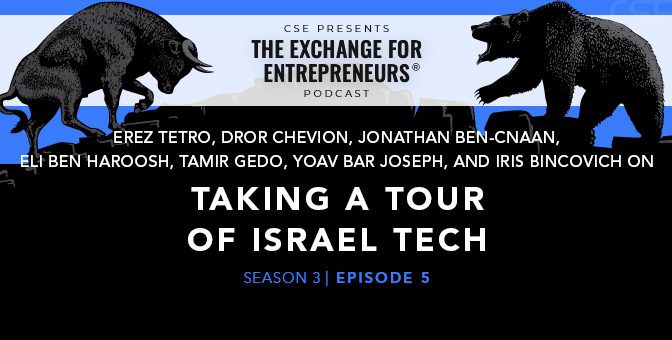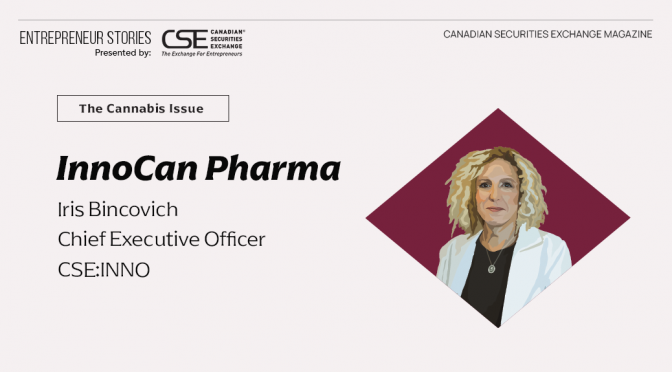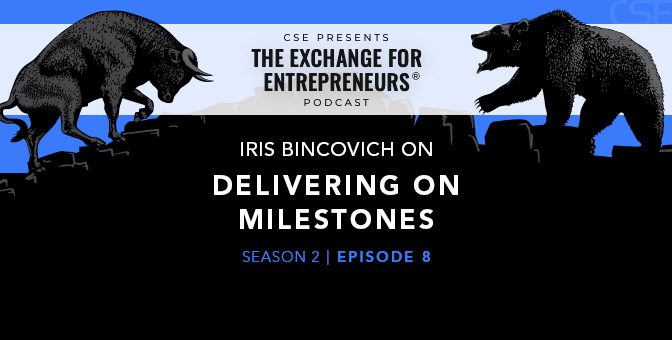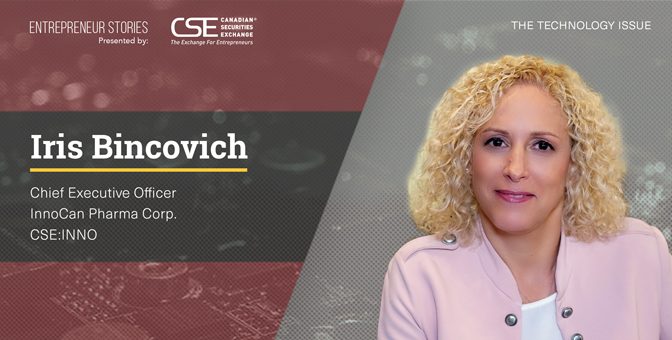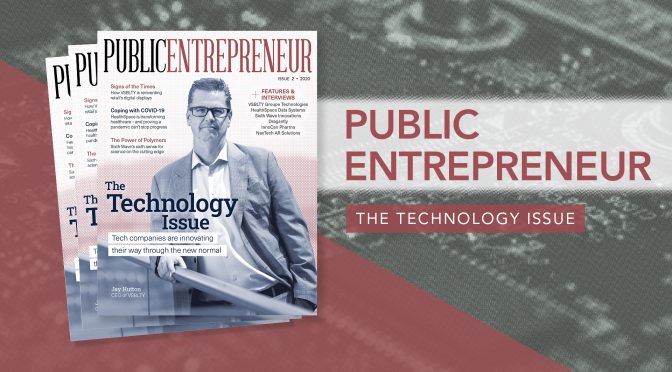CBD is advertised as providing relief for anxiety, depression and post-traumatic stress disorder, among other benefits. Its popularity reflects, in part, that it is positioned as non-psychoactive while still providing access to many aspects of the cannabis plant that are good for human health.
The challenge is to create a more precise and efficient method for delivering CBD into a patient’s body, preferably allowing for synergistic effects and/or controlled release.
InnoCan Pharma (CSE:INNO), based in the Israeli tech hub of Herzliya, has found what might be the golden ticket for CBD-integrated pharmaceutical technology in the form of a method to inject CBD into the body.
InnoCan and Ramot, Tel Aviv University’s business engagement centre supporting scientific discovery, are collaborating on a revolutionary exosome-based technology that targets both central nervous system indications and COVID-19 coronavirus symptoms, as CBD-loaded exosomes have the potential to provide anti-inflammatory properties to help infected lung cells recover. Public Entrepreneur spoke with InnoCan Chief Executive Officer Iris Bincovich recently about this project and other exciting directions the company’s technologies are taking.
Tell us about your personal background and how InnoCan came to be.
My background is in healthcare, working in the international pharmaceutical and cosmetic and medical device arena, and I hold a Bachelor of Science degree in chemistry from the Israel Institute of Technology.
I have experience developing strategies and building brands in the dermatology space, and I have worked and communicated with top pharmaceutical companies and cosmetic companies, including Johnson & Johnson, Estée Lauder and L’Oréal.
InnoCan Pharma was established by Yoram Drucker, an Israeli serial intrapreneur with experience founding companies in the field of stem cells; Ron Mayron, former CEO of Teva Israel, Teva Pharmaceutical being one of the most important generic drug producers in the world; plus Nir Avram, who was on the pharmaceutical innovation team at Perrigo and holds a number of patents, not to mention more than 30 years of experience developing topicals. We bring worldwide experience in healthcare and nearly 20 years of international marketing, business development and sales experience. I have led and managed hundreds of successful international transactions in the OTC cosmetics and dermatology sector.
InnoCan gives me an opportunity to utilize my experience, take my knowledge in the healthcare markets and combine it all into a company that today is active in three different segments.
We are involved in several pharma projects with the Hebrew University of Jerusalem and with Tel Aviv University to better administer cannabinoids into the body with innovative delivery platforms and potential to treat several diseases.
We have also developed a line of over-the-counter topicals, Relief & Go, targeting a variety of skin conditions associated with issues like pain relief. Our pain relief spray provides a fast-action muscle relaxant and pain relief. It contains an analgesic blend of active ingredients, with isolated CBD to provide temporary relief of muscle and joint pain.
And we developed a line of CBD-integrated derma cosmetics, SHIR, whose formulations feature a tailored blend of active ingredients and technologies.
Let’s talk about the technology itself. How is the company using exosomes and CBD?
We are developing a new platform that delivers cannabinoids in an improved way into the body. Our latest project is a collaboration targeting the COVID-19 virus with Tel Aviv University and Professor Daniel Offen, who heads the Neuroscience Laboratory at the Felsenstein Medical Research Center.
Exosomes have the ability to target damaged cells like a targeted missile, improve regeneration and assist in their recovery. Together with Professor Offen, an experienced researcher on cell and gene therapy in neurodegenerative diseases, we are looking to develop new technology that might be applicable to several indications.
Professor Offen is a co-founder of several biotechnology companies developing therapies for neurological disorders. One of them, BrainStorm Cell Therapeutics, developed cell treatment for ALS patients and is now in Phase III clinical trials.
Along with Professor Shulamit Levenberg of Technion, the Israel Institute of Technology, he previously utilized loaded exosomes administered by intra-nasal spray into rats with severe spinal cord injuries. The results were dramatic. Within a few weeks, the rats began to walk again.
With COVID-19, most people die from a secondary infection and lung or multi-organ failure. CBD is highly anti-inflammatory, and CBD-loaded exosomes, which we refer to as CLX, may hold the potential to provide anti-inflammatory properties and assist in the recovery of infected lung cells.
The lungs are the organ most affected by COVID-19, so the CLX are expected to be administered by inhalation.
How far along in the development process are you?
We are in the preclinical stage, which we estimate will take nine to 12 months. We will begin production of exosomes loaded with CBD and then do in-vitro proof of concept in several models. From there, we will do animal proof-of-concept models and then safety testing.
InnoCan’s strategy is to combine R&D with commercial experience. Professor Offen has more than 20 years of experience working with stem cells and exosomes, and he has already established companies developing therapies for neurological diseases.
How do these different delivery methods compare to taking CBD oil orally?
We are developing a unique technology with Professor Barenholz from the Hebrew University to enable the injection of CBD into the body. When you take cannabinoids orally, about 80% of it is destroyed by enzymes of the liver. Patients overload to achieve a therapeutic level. More than that, the dose is not controlled systematically. In each case, a drop of oil is put below the tongue and it might take some time from administration until therapeutic effect is achieved. Size and therapeutic effect can differ from one drop to the next. We are proposing a much more controlled and effective delivery system.
CBD is an oil molecule that normally cannot be easily injected into the body. But once isolated inside a capsule, such as a liposome, it could be injected. Liposomes are small vesicles that could entrap a substance inside.
Imagine a child with epilepsy – which there is already an FDA-approved CBD drug for – having a seizure; today he needs to be under close care, to be given the medicine, it will take a few minutes until the effect begins, and so on. InnoCan’s approach could be different. We are looking at a solution where the child will have a smartwatch connected to a pump with injectable CBD-loaded liposome. Then, instead of the child having a seizure, maybe falling to the floor and needing someone to administer CBD, the watch will sense the seizure and instruct the pump to inject a specific amount of CBD into the body. Precise delivery of CBD immediately could assist in relieving the seizure.
And this is just one application. For an epilepsy seizure, the CBD would be released immediately, but the liposomes can also be multi-layered to prolong the release of the CBD. We are developing a platform for several potential indications.
For example, for people suffering from chronic pain, we may be able to offer an injection once a week, and over time one could have a consistent release of CBD into the body.
Professor Barenholz has already developed a liposome-based breast cancer drug, named Doxil, that was licensed by Johnson & Johnson. We are working with people who have done this before and are connected to the commercial side. This is the value-driven proposition of the company.
Do you have any other products headed for commercialization?
We have our over-the-counter topicals, patent pending products that combine CBD and other active ingredients targeting skin conditions, pain relief, as well as for itchiness.
We also have a line of premium cosmetic products for women. Those products are now being produced by two manufacturers: one in New Jersey for the US market, and one in Portugal for Asia and Europe. Sales will start in the second half of 2020.
Eventually, the world will open up again, and there are lots of plans for the future, including additional distribution contracts for the topicals.
In Canada, we are in dialogue with several companies to enable local distribution. We need to collaborate with a local licensed producer in order for them to manufacture, distribute and sell our topicals to the different provinces. And I can say that we are in the screening process of who is going to be our local partner there.
This story was featured in the Public Entrepreneur magazine.
Learn more about InnoCan Pharma
at https://innocanpharma.com/.

